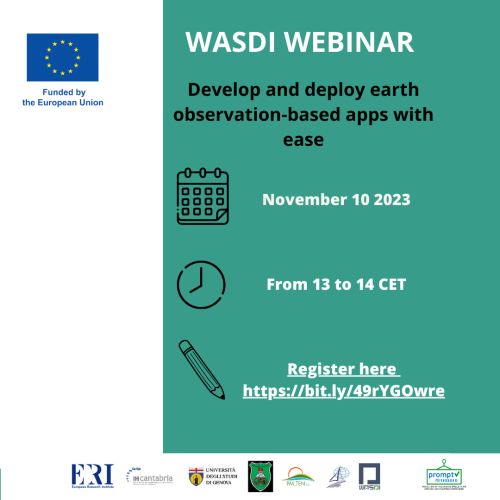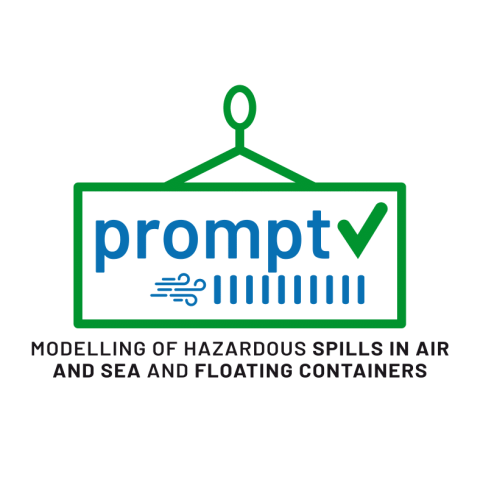Webinar Training on Developing Applications Based on Earth Observation data
PROMPT’s consortium provided support for the training activity on developing applications based on Earth Observation data and deploying them in the cloud with the help of WASDI, a PROMPT consortium member. The event focuses on what you need to know to work on the algorithms and models, without wasting time and energy in tackling IT-related issues. It will highlight the functionalities of the website, and then dive into Python development using Jupyter Notebooks. If you are a professional in #RemoteSensing, you probably experience a discrepancy between the algorithms you design (and the science behind them) and their implementation in practice, worry no more, as the event is designed to tackle those challenges, thanks to the European Space Agent (ESA) as the organizer. The event was held on the 10th of November, 2023 from 13 to 14 CET and it was considered as a complementary of PROMPT’s effort to contribute to its long-term goal by addressing the following issues;
Yes, you may download some files to conduct some limited experiments, but when trying to work on a larger scale, you begin to encounter issues:
You find yourself involved in manual repetitive tasks. Yes, you may write your code for automating them, but this process is time-consuming, and you'd probably be better off dedicating that time to tweaking your algorithm, and experimenting with the parameters it uses.
You realize you don't have enough data to train your models, so you get yourself even deeper into the swamp of downloading those files.
You probably spend a lot of time preprocessing those files and discovering all those little things you need to fix: PRJs, CRS, different resolutions, misaligned pixels
You heard you should stop downloading and work with #datacubes and access the pixel directly, and it sounds nice, but how do you do that in practice?
And these are just some of the issues you encounter daily. How much of your time do you dedicate to menial tasks such as these? How much time do you invest in just getting the data ready to begin working on them, and experimenting with your ideas? It's probably way too much.
And you are not done yet: your implementation might be nice, but there's still a long way to go from your code to setting up an operational service in the cloud.
You may need to set up a virtual server on some cloud, and update it and maintain it securely. Or maybe you could use a container that you can deploy on an orchestrator service on demand, that sounds cool! It sure is possible, but how much time are you willing to invest in that?
These are IT skills, not #EO skills: how much time are you willing to sacrifice to acquire them? And remember you need to practice frequently and keep yourself up-to-date, or you'll never manage to do better than an amateur job.
You may want to ask yourself these questions:
How many papers do you read each week? How many are you willing to sacrifice?
Is IT worth the loss of science?
Shouldn't you be better off working on refining your processor?
Wouldn't it be more satisfying to test your ideas by doing experiments?
Why should you give up on these fulfilling activities?
But worry not, if you've ever encountered these challenges, then I have good news: #WASDI comes to the rescue! Concentrate on what matters, no more system administration, as top research institutions such as the Luxembourg Institute of Science and Technology (LIST) and the CIMA Research Foundation can demonstrate.
And the very good news is that you can use it for free, thanks to the #ESA #NoR initiative!

